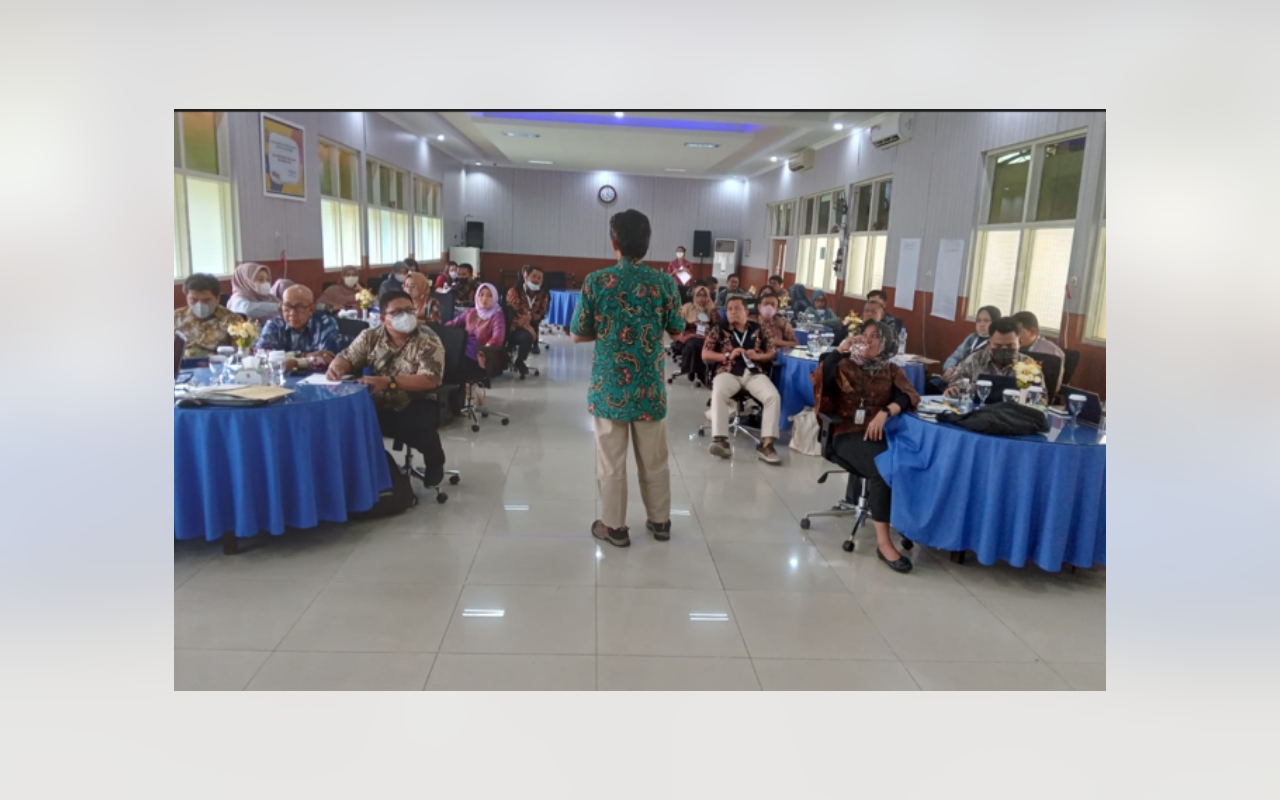October 6, 2022 | UCLG ASPAC, in collaboration with the Indonesian Ministry of Home Affairs and Sustainable Development Goals (SDGs) National Secretariat of BAPPENAS (National Development Planning Agency), held a training activity to support local governments in Indonesia to produce Strategic Environmental Assessment and apply the SDGs Metadata Indicator 2nd edition, as a basis to formulate Mid-term Local Development Plan (KLHS RPJMD) (regulated in the Presidential Regulation No. 111 Year 2022 on SDGs Implementation and Achievement). The training was also designed to enhance the awareness of member cities and local governments on the importance of international cooperation to support SDGs achievement.
The training, held in Surabaya on October 6, 2022, in conjunction with the 2022 EAROPH World Congress, was attended by 30 participants (mainly members of the development planning board and environmental office handling the SDGs integrated development plan) from 11 member cities. In the opening ceremony of the 2022 EAROPH World Congress, UCLG ASPAC Secretary General, Dr. Bernadia Irawati Tjandradewi highlighted the importance of local government’s capacity to achieve the SDGs through SDGs localisation training. The training combined the presentation of knowledge with interactive Q&A and provided space for participants to share their experiences and challenges on SDGs localisation. Ms. Rima Yuliantari Suharin, representing the Ministry of Home Affairs of Indonesia, presented guidance on the preparation of strategic environmental assessment for long term and mid-term development planning (KLHS RPJMD and KLHS RPJPD) document alongside the advices on how local governments must meet the timeline of development planning stages. Mr. Luthfi Mutaáli, lecturer from Gajah Mada University, addressed the necessity for member cities to recognise their own environmental capacity during the development of KLHS and review the capacity with development plan. Speaking about the metadata indicator 2nd edition, Mr. Rachman Kurniawan from SDGs National Secretariat, underlined the importance of member cities’ ability to provide sufficient data to address the indicators. According to Presidential Regulation No. 111 Year 2022 on SDGs Implementation and Achievement, the national government had reduced the indicators from 319 to 289 indicators. The objective of the adjustment was to ensure the national indicators being in line with global indicators. The importance of city-to-city cooperation in support of SDGs achievement at sub-national level was also highlighted in the end of the Training.












